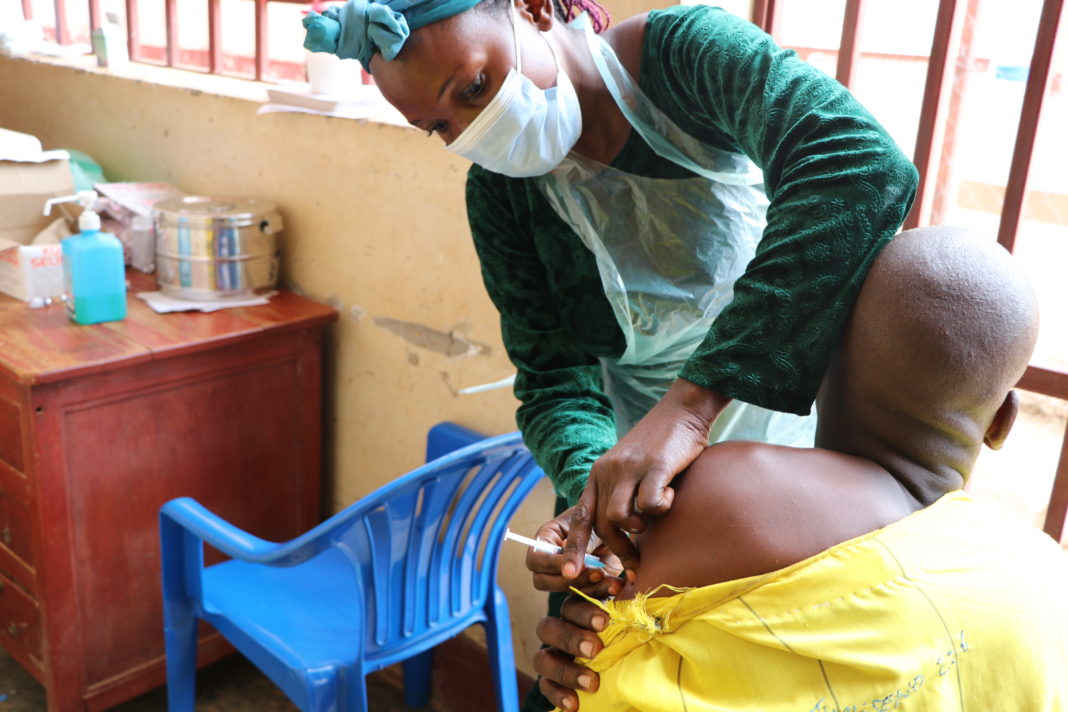In December 2019, the World Health Organization (WHO) confirmed the outbreak of the Covid-19 pandemic. The first cases were confirmed in Wuhan city of China. On March 21, 2020, Uganda registered its first COVID-19 case. The case was of a 36- year old Ugandan male who arrived from Dubai.
The outbreak of the pandemic presented a social and economic threat to many countries in the world, including Uganda. In response, the government developed and instituted several interventions to control and avert the effects of the pandemic on the economic and social well-being of its citizens.
The interventions included; instituting a total lockdown, closure of airports, restriction of cross-border movements, and increased surveillance among others which in turn necessitated additional funding.
Since the outbreak of the pandemic, Uganda registered 170,255 cases of Covid-19. Of the confirmed cases 100,440 recovered while 3,632 died.
In tandem, on September 20, 2022, Uganda announced the outbreak of Ebola disease. The disease was caused by the Sudan ebolavirus.
It was the country’s first Sudan ebolavirus outbreak in a decade and its fifth overall for this kind of Ebola. In total there were 164 cases (142 confirmed and 22 probable), 55 confirmed deaths and 87 recovered patients. More than 4000 people who came in contact with confirmed cases were followed up and their health was monitored for 21 days.
According to Arnold Ezama, manager of epidemics and pandemic response at the Red Cross, 75% of the emerging and reemerging diseases are Zoonotic spreading between people and animals. The diseases are caused by germs, such as viruses, bacteria, parasites, and fungi. Some can be severe and life-threatening, such as rabies, and others may be milder and get better on their own.
“As we get closer to wild animals, increased global mobility, population increase, urbanization, and climate change, we are near to the next epidemic or pandemic therefore we need to be prepared. We should sensitize people about the basics to fight and prevent specific pandemics,” he said.
Ezama said pandemics don’t only affect human beings but animals and the environment. As we live in the environment, we must live in a sustainable manner. People must understand that we have a lot of resources; physical, and economic among others and we must use what we have to fight the pandemic or epidemics. As we prepare for future pandemics, we must understand communities and be able to bring services closer to them, be it vaccines, sensitization, or awareness campaigns.
Dr. Daniel Kyabayinze, Director in charge of public health at the ministry of health said Uganda has so far experienced most of the pandemics and has the capacity such as surveillance to keep a better watch on what is happening in t in regard to zoonotic diseases, vector bone diseases and viruses of respiratory origin.
“The country has a laboratory capacity in place and will give us a hinge of preparedness, Ugandans are more aware and ready to listen and take in the advice as given, alert and in tune with political will and leadership, everyone knows that we have to work together to fight both the epidemic and pandemic,” he said.
He said in the recent past, the country had laboratories, scientists, and medical supplies but it had not gone through a massive shutdown and involvement as it was with Covid-19 and therefore government must invest more in the health sector.
Dr. Louis Kamulegaya, project and research manager at Rocket Health said many telemedicine grew during the covid-19 pandemic distributing medicine in Uganda and throughout the world.
“As telemedicine, we had some challenges however we met clients’ expectations within the shortest time possible. We delivered medicines and other services to people and met their expectations just as they would have walked into a physical facility and that was possible because of accommodative logistical service in terms of lab technicians and pharmacists who met the large client numbers or traffic in the shortest time possible.
“Ministry of the health call center was pivotal in tracking and reporting of cases as well as different advertisements and a number of applications that were aiding remote follow up in terms of being able to remote report your temperature report to end the onset of new symptoms. So you find that technology is adaptable, can easily be taken on as a tool for monitoring and accessing health services,” he said.
In areas where there is no technology, Ezama said the government and stakeholders need to go back to the drawing board and invest their time in teaching people how to wash their hands, how to sleep under mosquito nets, drink boiled water, and others. We really have to invest back in the structures. The communities have social capital. They have local leaders and VHTs who can promote health education.
In the future, he envisions seamless information sharing across borders aided by technology, and an increase in the utilization of improved diagnostics, in terms of ease of diagnosing diseases. This means that innovators need to be prioritized. Researchers in laboratory technicians and Universities need to be equipped with the knowledge and be adequately funded so that we do not import at high costs and taxes but rather locally generated capabilities.








